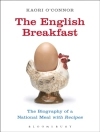Despite the growing interest in general European history, the European dimension is surprisingly absent from the writing of contemporary history. In most countries, the historiography on the 20th century continues to be dominated by national perspectives. Although there is cross-national work on specific topics such as occupation or resistance, transnational conceptions and narratives of contemporary European history have yet to be worked out. This volume focuses on the development of a shared conception of recent European history that will be required as an underpinning for further economic and political integration so as to make lasting cooperation on the old continent possible. It tries to overcome the traditional national framing that ironically persists just at a time when organized efforts to transform Europe from an object of debate to an actual subject have some chance of succeeding in making it into a polity in its own right.
قائمة المحتويات
Acknowledgments
List of Acronymns
Introduction: Contours of a Critical History of Contemporary Europe: A Transnational Agenda
Konrad H. Jarausch and Thomas Lindenberger
Part I: Contested Memories
Chapter 1. History of Memory, Policies of the Past: What For?
Henry Rousso
Chapter 2. Communist Legacies in the ‘New Europe’: History, Ethnicity, and the Creation of a ‘Socialist’ Nation in Romania, 1945–1989
Dragos¸ Petrescu
Chapter 3. Writing National Histories in Europe: Refl ections on the Pasts, Presents and Futures of a Tradition
Stefan Berger
Chapter 4. Between Europe and the Nation: The Inward Turn of Contemporary Historical Writing
Pieter Lagrou
Part II: Multiple Conflicts
Chapter 5. War and Conflict in Contemporary European History, 1914–2004
John Horne
Chapter 6. In Search of a Second Historicization: National Socialism in a Transnational Perspective
Kiran Klaus Patel
Chapter 7. The Origins of the Cold War in Eurasia: A Borderland Perspective
Alfred J. Rieber
Part III: Transnational Interactions
Chapter 8. Europe as Leisure Time Communication: Tourism and Transnational Interaction since 1945
Thomas Mergel
Chapter 9. Integration from Below? Migration and European Contemporary History
Karen Schönwälder
Chapter 10. Twentieth-Century Culture, ‘Americanization, ’ and European Audiovisual Space
Marsha Siefert
Chapter 11. Economics of West European Integration? Proving the Benefi ts 1952–1973
André Steiner
Part IV: Unfinished Political Processes
Chapter 12. A European Civil Society?
Hartmut Kaelble
Chapter 13. International Socialist Attempts at Bridge-Building in the Early Postwar Period
Örjan Appelqvist
Chapter 14. Nation Building in the Era of Integration: The Case of Moldova
Igor Casu
Postscript: The Subject(s) of Europe
Michael Geyer
Selected Bibliography
List of Contributors
عن المؤلف
Thomas Lindenberger is project leader at the Zentrum für Zeithistorische Forschung Potsdam and teaches at Potsdam University. His current research interests center on questions of mass media in the Cold War as well as on issues of historical methodology and theory. His publications include Öffentliche Polizei im Staatssozialismus: Volkspolizei, SED-Staat und Herrschaftspraxis, 1952-1968 (Köln et al. 2003); and the edited volumes Herrschaft und Eigen-Sinn in der Diktatur: Studien zur Gesellschaftsgeschichte der DDR (Köln 1999) and Massenmedien im Kalten Krieg: Akteure, Bilder, Resonanzen (Cologne, 2006).












